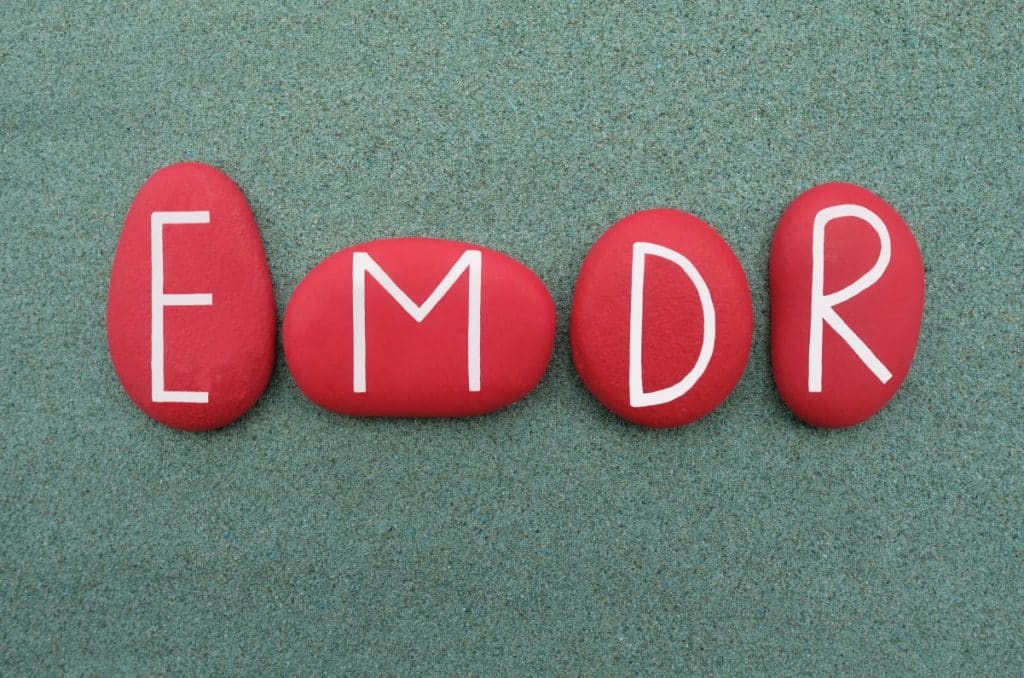Are you struggling with past traumas or emotional distress that just won’t go away? Traditional talk therapies might not be enough to help you move forward. That’s where Eye Movement Desensitization and Reprocessing (EMDR) therapy comes in.
This innovative approach combines talk therapy with eye movements, sounds, or taps to help reprocess traumatic memories and alleviate symptoms of anxiety, depression, and more.
What Is EMDR Therapy?
EMDR, or Eye Movement Desensitization and Reprocessing Therapy, is a unique psychotherapy approach that is designed to help individuals overcome the effects of traumatic experiences. This therapy was developed in the late 1980s by psychologist Francine Shapiro and has since been used successfully to treat post-traumatic stress disorder (PTSD), anxiety disorders, depression, and other mental health conditions.
Differences Between EMDR Sessions and Conventional Talk Therapy
During EMDR therapy sessions, clients are asked to recall specific traumatic memories while engaging in a series of rapid eye movements or other forms of bilateral stimulation. The goal is to help reprocess these negative memories so that they no longer have the same emotional impact on the individual.
Unlike traditional talk therapies where clients may spend months or years discussing their thoughts and feelings with their therapist, EMDR therapy can often produce positive results within just a few sessions. While it may not be suitable for everyone, many people find this approach highly effective at reducing symptoms associated with past trauma.
How Does EMDR Work?
During an EMDR session, a therapist will guide a patient through different stages of treatment that include identifying your traumatic memories and negative beliefs about yourself. Then, you’ll be asked to focus on these memories while simultaneously engaging in bilateral stimulation such as following the therapist’s hand movements with your eyes or listening to alternating tones in your ears.
The theory behind EMDR is based on how our brains process information during rapid eye movement sleep (REM). When we experience trauma, our brain cannot fully process it like other normal memories. Instead, it gets “stuck” in our memory network and can continue to cause distress long after the event has ended.
EMDR Shows Positive Results and is Proven Effective
By pairing trauma memories with bilateral sensory input during EMDR sessions, it helps reprocess them so that they are no longer overwhelming and emotionally charged. In essence, this form of therapy allows individuals to face their traumas without becoming overwhelmed by them.
Although the exact mechanisms remain unclear or disputed among some researchers— many clinical studies have shown positive results from EMDR therapy when treating PTSD symptoms related to various types of trauma including combat exposure, sexual assault/abuse and natural disasters.
What Are the Benefits of EMDR Therapy?
EMDR therapy has been found to be a highly effective treatment for people who suffer from:
- Trauma
- Anxiety
- Depression
- Phobias
- Panic attacks
- Addiction
- And other maladaptive behaviors
One of the main benefits of EMDR therapy is that it can help individuals process traumatic memories in a safe and controlled environment.
EMDR therapy is also known to be more efficient than traditional talk therapies because it focuses on specific issues within each session. This means that clients may see improvements in their symptoms after just a few sessions.
Another benefit of EMDR therapy is that it helps clients develop coping mechanisms to manage difficult emotions when they arise. Through EMDR sessions, individuals learn skills such as mindfulness and grounding techniques that can help them regulate their emotional responses outside of the therapeutic setting.
EMDR offers a unique approach to healing by combining both cognitive-behavioral strategies with somatic sensory processing which results in deeper levels of recovery for those seeking healing from psychological trauma or distressing life events.
Who Can Benefit From EMDR Therapy?
EMDR therapy has been proven to be effective for a wide range of mental health issues, which means that almost anyone can benefit from this type of treatment. Whether you are struggling with PTSD, anxiety, depression or any other trauma-related issue, EMDR could help you overcome these challenges and live a happier life.
One of the benefits of EMDR is that it does not require talking through traumatic events in detail like traditional talk therapy. This makes it an ideal option for those who struggle to verbalize their experiences or have difficulty accessing their emotions.
Highly Effective for Some, But Not For Everyone
However, it’s important to note that EMDR may not be suitable for everyone. People experiencing acute psychosis or severe dissociation might need alternative therapeutic approaches first before considering EMDR as an option.
If you’re interested in exploring new ways to manage your mental health and improve your overall well-being, then seeking out a qualified EMDR therapist like ours here at The Bluffs Addiction Campuses could provide the support and guidance necessary for healing old wounds and moving forward with renewed strength and resilience.
Looking for a Breakthrough with Trauma or PTSD? We Offer EMDR Therapy
EMDR therapy is a unique form of psychotherapy that has been proven to be effective in treating various mental health conditions. It utilizes eye movements, sounds, and other forms of stimulation to help individuals process traumatic memories and negative emotions.
If you or someone you know is struggling with trauma-related issues or any mental health condition that affects their daily functioning, consider giving us a call at (850) 374-5331 and we can help discuss options for you to visit one of our highly qualified EMDR therapists.
The journey towards healing may not be easy but taking that first step could make all the difference. With the right support and guidance from our qualified professionals using evidence-based approaches like EMDR therapy, recovery becomes possible.







